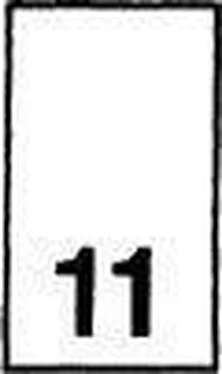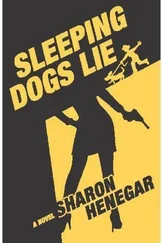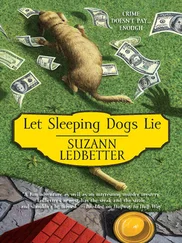“Oh, shit,” said the salesman. “He’s hit too.”
“Why doesn’t he talk?”
“He doesn’t know any English. The B-Man knows a little Spanish.”
Ackerman looked down at the man sprawled across the seat. He was sweating and shivering and looking gray in the face. He might live, but he wasn’t going to do any translating tonight. Ackerman leaned over the seat and put his head over the other man’s shoulder. He could see that a bullet had hit the man’s arm, and blood had soaked the front of his blue shirt. He looked closer. It was a clean hole punched through the left bicep, about the size of a double-ought buckshot pellet. But he could tell that that wasn’t what had hit him; a stray round had clipped him when the salesman had hosed down the neighborhood with the Uzi. At the time he had noticed that only about half the magazine had hit the car. It was probably just as well that they hadn’t called for an ambulance. The ones nearby could be filling up now with people who had been sitting in their apartments watching the late news. “It looks like only one shotgun pellet,” he said. “He’s not in danger, but he’ll need some help, too.”
The salesman didn’t seem to recognize the absurdity of the theory that twelve pellets in a five-inch pattern had left only a single small puncture. “It’s just down there,” he said.
“Pull over,” said Ackerman.
“What for?”
“Do it. We’ve got to go through their pockets. If they’ve got drugs or too much money on them they’ll have to answer different questions.” The salesman coasted to a stop, then executed a perfect unconscious parallel-parking job, backing right to the curb. But then he forgot to take the car out of gear and it lurched into the car in back with a crack, rocking it a little. The man in the front seat seemed to understand what was happening to him and pointed to the pockets he couldn’t reach. In the back seat, Ackerman found that the unconscious man was more difficult. His limp, dead weight was enormous. There were little glass tubes of crack hidden in all his pockets, and a huge roll of bills in his jacket. The last thing Ackerman found was an automatic pistol at the small of the man’s back, unfired and probably forgotten in his terrified dash to get away. He slipped it into his coat pocket.
He was aware as each second passed that he could easily raise the .357 Magnum and kill the salesman, then the man beside him, and walk away. Drug dealers had always been crazy and unpredictable, and he had stayed away from them. They always seemed to him to be driven by some horrible, aching greed that would make them feed until they burst, like ticks. He had never heard of one who had stopped because he had decided he had enough money. They just kept getting more bloated and voracious until they died in some violent explosion of overconfidence or madness, or the sheer physical principle that when a hoard of money got big enough it created its own predators to disperse it.
His reluctance to be rid of them had something to do with how young they were, and how spectacularly inexperienced. They were so alien to him, he sensed that the environment that would allow them to survive was a place he had never been. In the old days—he recognized that his urge to use that phrase trapped him in the past and made him only a visitor in the present, but he had no choice—these small entrepreneurs would have been co-opted and trained in the iron discipline of the local organization, or else swept away. The only explanation for these tiny gangs of boys in the streets was that anarchy must have descended on the world.
The salesman stared at him over the car seat, and Ackerman could see that he was sweating and frightened. He took pity on him. “Okay. Here’s what we do: you pull up the driveway where the ambulances go. Get as close to the emergency-room door as you can, and keep the motor running.”
The salesman drove to the blue sign that said EMERGENCY and AMBULANCES but nothing else. As he took the turn, he swung wide and had to jerk the car to the right to avoid an ambulance with its lights off gliding down the drive to return to its garage. “I’ll kill that fucker,” he hissed.
Ackerman knew that if he allowed the salesman to get frightened enough, his deranged mutterings might develop into a real intention, but he decided to ignore them for the moment because the Jaguar was now moving up into the bright yellow glow of the sodium lights. As soon as the car coasted to a stop, Ackerman got out, pulling the wounded man out behind him by the ankles. As he stepped back to duck under him for a fireman’s carry, he stepped on the foot of a man behind him. He stopped and glanced over his shoulder.
As he turned back toward the car he still held the image of the man, a tall, barrel-chested policeman wearing a light blue shirt with little epaulets on the shoulders, and such a burden of metal and black leather around his waist that he looked a yard wide. There were a flashlight, a nightstick, a canister of mace, a pocketknife in a black leather case, ammunition and the heavy black knurled handgrips of the service revolver, all creaking and clicking as he bent to look inside the car. He heard the policeman say, “What’s wrong with him?” and he answered, “I can’t tell, but he’s bleeding, and so is his friend. My driver found them lying in the street.”
The policeman moved to the double doors, which hissed open as soon as he stepped on the black rubber mat, and grabbed an orderly who was pushing a gurney around the corner to the next hallway. He could hear the policeman’s voice. “I don’t give a shit who you work for. I got gunshot wounds out there.” He had his hand on the orderly’s back, so it looked as though he were pushing the man and his gurney out the door.
The policeman and the orderly hauled the man the rest of the way out of the back of the car and lifted him onto the gurney. As the orderly wheeled him into the building, the policeman walked over to an ambulance driver who was just putting his oxygen bottle back into its carrying case inside his parked rig. As he and the ambulance driver pulled a stretcher out of the ambulance, its legs swung down and locked. By now the second wounded man was out of the front seat and standing beside the car unsteadily, and he gladly flopped onto the stretcher for the short ride inside. The policeman muttered, “You two park the car over there and come back. I’ll need you for a few minutes,” then pushed the stretcher to the door.
Instantly Ackerman was in the passenger seat beside the salesman. “Drive. Get out of here,” he said. The salesman had been sitting motionless, not even daring to glance at the policeman in his rearview mirror. Ackerman knew it must have taken a great act of will for him. Since childhood he had undoubtedly survived the way the thieves in the old days had, scattering at the first sign of the uniforms, each one scrambling in a different direction, down alleys and over fences, each of them alone and hoping that he wouldn’t be the one they picked to chase down. Now the salesman was released from whatever had held him. His instincts, temperament and ability to calculate all urged him away, and he let them carry him. He stepped on the gas pedal and the car was in motion.
A hundred feet away, an old man was shuffling across the drive toward the emergency room, staring down at the pavement with a contemplative look on his face. He took each little step carefully, with intense concentration, satisfied with the almost invisible progress it represented. The old man was caught in the lights for a moment and looked up defiantly, squinting a little, then stopped walking as though he intended to make this young fool wait as long as possible.
“You see the old guy?” Ackerman asked.
“Sure,” said the salesman, but he didn’t slow down. Ackerman could see the old man judging the distance to the curb and estimating the damage he would sustain if he made a dive to the pavement. The old man’s decision was conservative. He aimed himself at the curb and began to shuffle toward it, faster now than before, in a strange little dance that looked as though he were going down invisible stairs. The car shot past him, the slipstream blowing his coattails up and sending a ripple of wind to flutter his baggy pants. Then he was visible for a second in Silhouette against the yellow light of the hospital entrance, still standing.
Читать дальше












